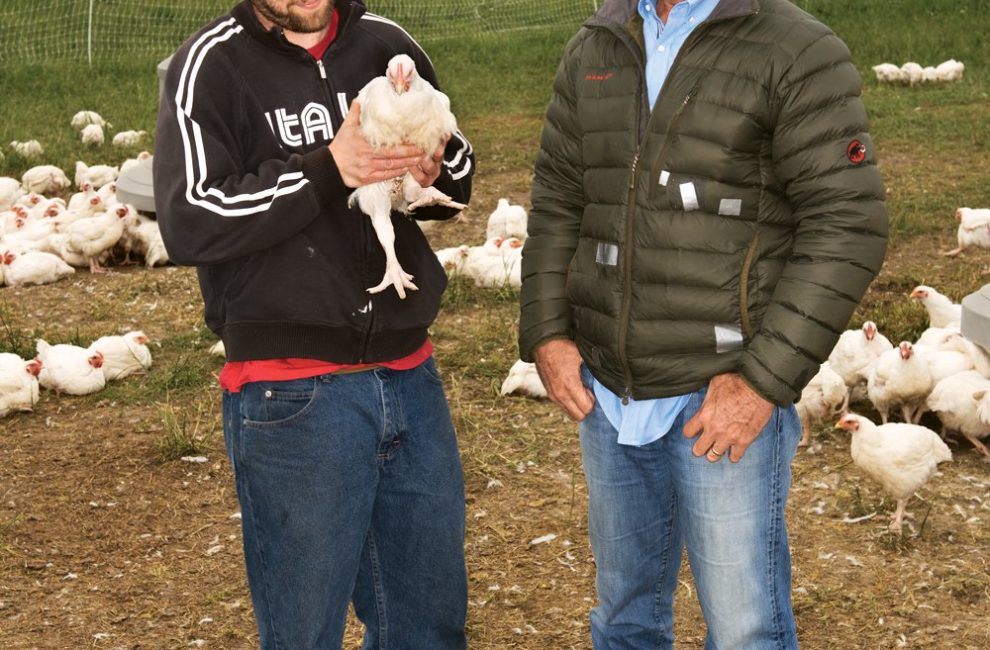
Farm-to-Table Talk with Chris Baggott & Ian Rossman
ExactTarget co-founder Chris Baggott sweeps his arm across the lush Greenfield countryside to indicate the seven farms that now compose Tyner Pond Farm. “Everyone wants local farms to be small,” he says. “But we’re not even close to supplying enough meat and produce for the restaurants and home customers who want it. Bringing small farms together isn’t bad if you do it right. It’s absolutely what we have to do to meet demand and bring down prices.” Ian Rossman incorporates Baggott’s meats at The Garden Table, the first place where the chef—who sourced regionally during a tenure at two-time Top Chef contestant Dale Levitski’s Chicago restaurants—has enjoyed complete creative independence.
Most of Tyner Pond Farm’s meat goes to home-delivery customers. How did it come to stock The Garden Table?
Rossman: I knew I wanted to serve local, naturally raised meats. Tyner Pond doesn’t supply to many restaurants, but we talked with Chris and worked out a deal. Chris keeps us up-to-date on what’s available, and I can sometimes get more at the self-service shop he has on his property. We use his White Delaware chickens and his skirt steak for our salads, and his pork for our chorizo hash bowl.
Baggott: We like working with restaurants. It’s why we opened our own, The Mug, in Greenfield, where we’ve got a $2 cheeseburger. Chefs help us with supply issues, often making their menu around the cuts our customers don’t want. But chefs have to be creative and flexible enough not to demand the pork chops and beef tenderloin we need for our delivery business.
Where is Indiana going in terms of locally sourced produce in homes and restaurants?
Baggott: Hoosiers spend $16 billion or more on food every year, and about 90 percent of that food is imported. That has to change. We’re inspiring a vertically integrated farming system that eliminates the middleman and gets more produce out to homes and chefs. We went around looking for all of the farms that had signs saying they were selling eggs. Now we provide these farmers non-GMO feed, and then we buy many of their eggs. They’re proud to have their eggs in area restaurants. It’s the model we hope will help keep more of the food we produce here in-state.
Rossman: Our food culture has grown so much since I had my first kitchen job at Iaria’s back when I was 19. But we’ve really poisoned our food supply for decades now with chemical fertilizers, antibiotics, and GMO seeds. And you can see that the country is less healthy because of it. When I was young, we had organic, non-GMO food. We need to start getting back to that. Chris gave a slow-food talk at the restaurant. I’m happy to promote farms and do my part in helping farms provide better food for Hoosiers.

Rossman concocts The Garden Table’s chicken salad with Tyner Pond Farm white-meat chicken, Greek yogurt, lemon, fennel, dill, celery, and arugula, all on Amelia’s Bakery semolina bread.
This article appeared in the August 2015 issue.





